By: Widi Kusnadi, Senior Editor of MINA
Apart from being known as Syahrus Shiyam (month of fasting), Ramadan is also known as Syahrul Jihad wal Intisharat (month of jihad and victory).
In the history of the development of Islam, the various struggles of Muslims, both in the context of war jihad, liberation and the victories of other Muslims, have happened a lot during the month of Ramadan.
This indicates that Ramadan is not a time to relax, or sit idly by waiting for compensation. But the month of Ramadan is the time to try your best, work hard, roll up your sleeves, tighten your belt, think more seriously, focus and put your full trust in Allah Almighty.
Also Read: Fryday Sermon: Hijrah in the Struggle for the Liberation of Al-Aqsa and Palestine
Prophet Muhammad Sallallahu ‘Alihi Wasalam and his companions, as well as previous pious people can be examples of how to fill this month of Ramadan with achievements, glorious records of victories, incised gold ink for the advancement of human civilization.
In explaining the meaning of jihad, the Prophet Muhammad Sallallahu ‘Alihi Wasalam said:
وَالْمُجَاهِدُ مَنْ جَاهَدَ نَفْسَهٗ فِي طَاعَةِ اللهِ / رواه احمد
Meaning: “And what is called a mujahid (person who jihad) is a person who is sincere in carrying out obedience to Allah” (H.R. Ahmad).
Also Read: Sadaqah, A Simple Act with Extraordinary Virtues: Dr. Wahyudi KS
The Forms of Jihad in the Month of Ramadan
Ibn Rajab Al-Hambali in his book, Latho’iful Ma’arif, describes the form of jihad in the month of Ramadan as follows: “Know that a believer performs two jihad in the month of Ramadan. The first jihad is jihad on oneself during the day by fasting. Meanwhile, the second jihad is jihad at night with night prayers. Whoever performs two jihad and fulfills the rights associated with both, then continues to be patient in doing it, then he will be rewarded with Allah with an infinite reward. ”
There are several important events recorded in history that occurred in the month of Ramadan, including:
1. Battle of Badr
Also Read: The Dynamics of Living in a Muslim Community in the Modern Era
The first war experienced by Muslims was in the first year of the fasting order, namely in the month of Ramadan, the 2nd year H. Muslims under the direct leadership of the Prophet Muhammad took over to fight in the valley of Badr against the Quraish tribe of Mecca.
In that war, the number of Muslims numbered 313 people with makeshift war equipment, namely 8 swords, 6 armor, 70 camels, and 2 horses. Meanwhile, the Quraish had 1,000 men, 600 fully equipped weapons, 700 camels and 300 horses.
Even though in terms of the number of personnel and equipment, Muslims are less than the Quraish Kafirs, but with total sincerity and submission to Allah Subhanahu wa Ta’ala, victory could be won by Muslims.
2. Preparations for the Khandaq War
Also Read: The Meaning of “Minal Aidin wal Faizin”
Prophet Muhammad sallallaahu alaihi wa salam and his companions prepared a strategy to deal with the conspiracy of the Kafirs during the Ahzab (Khandaq) war in the month of Ramadan. Sayyid bin Husain al-‘Affani in his book Nidâul-Rayyân fî Fiqhi al-Shaum wa Fadhli Ramadhân (1417: 314) quoted Ibn Qayyim’s opinion regarding monumental preparations before this terrible war.
The digging of the trench (pre-Ahzab preparation) initiated by Salman Al-Farisi- in front of Mount Sala ‘, according to Ibn Qayyim, took a whole month. The length of the trench was up to five thousand cubits. Whereas the depth is up to seven cubits and the width is about seven cubits as well. With Allah’s help, their persistent and never-ending mental struggles were able to overcome this challenge and this happened in the month of Ramadan.
3. Fathu Makkah
The Fathu Makkah incident occurred on 17 Ramadan, 8 Hijriyah. An absolute victory was obtained by the Muslims by reclaiming Makkah.
Also Read: The Atrocities of Zionist Israel During Ramadan
In a book entitled “When the Messenger of Allah Has to Fight” written by Prof. Ali Muhammad Ash Shallabi, Rasulullah Sallallahu took over wa salam to arrive in Makkah with a full attitude of tawadhu. To the extent, his chin almost touched his chest. In that victory, the noble Prophet destroyed the idols in the Ka’bah.
At that time, he read the words of Allah in Surah al-Isra: 81. “The truth has come and the vanity has disappeared. Really the vanity will definitely disappear. ” The Prophet also recited another verse which is stated in Surah Saba: 49. “The truth has come and the vanity will neither initiate nor repeat.”
Towards Makkah,, ten thousand torches were lit. Precisely at Marr Azh Zhahran, where the Muslim troops rested and had dinner. Abu Sufyan, a key figure in the Quraish people, said, “I have never seen fire and troops like tonight.” Badil bin Warqa, who accompanied Abu Sufyan looking for news about the presence of the Muslims replied, “By Allah, this is Khuza’ah who is burning in war.” Abu Sufyan replied, “Khuza’ah is smaller and less despicable than this army.”
4. Liberation of Andalusia
Also Read: Imaam Yakhsyallah Explains the Interpretation of Quran Surah Asy-Shura Verses 13-15
Musa bin Nusair plans to free the people of Spain (Andalusia) as well as convey Islam to the country. Caliph Al-Walid bin Abdul Malik gave permission. Musa immediately sent Abu Zar’ah with 400 pedestrians and 100 cavalry across the strait between North Africa and mainland Europe.
On Thursday, 4 Ramadan 91 Hijriah or 2 April 710 AD, Abu Zar’ah entered a small island near the town of Tarife and succeeded in liberating the city. The success of Abu Zar’ah’s expedition aroused the spirit of the Governor of North Africa, Musa bin Nusair, to conquer all of Spain. So, he ordered Tariq bin Ziyad to bring troops for the second conquest.
Tariq bin Ziyad came from the Barbarian nation, currently a region of Algeria (Algeria). Regarding his tribe, historians still differ from the Nafza or Zanata tribes. He was a former slave who was later freed by Musa bin Nushair, Governor of North Africa from the Umayyah dynasty when he conquered the Tanja area (tip of Morocco). It was also in Musa’s hand that he embraced Islam along with other Barbarians.
In the book “Tarikh al-Andalus” it is stated that Tariq had a feeling that he had a dream of seeing Rasulullah Sallallahu take over with the four Khulafa’Al-Rashidin walking on the water until he met him, then Rasulullah Saw told the good news that he would succeed in conquering Spain. (Andalusia). Then the Prophet told him to always be with the Muslims and keep his promises.
Also Read: Imaam Yakhsyallah Mansur: Mosques Play a Central Role During Ramadhan
So, Ramadan teaches believers to be productive in all things, both in thinking, working and worshiping. The climax is to achieve a noble predicate in the sight of Allah Subhanahu wa Ta’ala, namely to be a pious person, be accepted by his acts of worship, be forgiven for all his sins and Allah will enter us into heaven, in His pleasure. Aamiin. (AT/RE1)
Mi’raj News Agency (MINA)
Also Read: Enter Ramadan with a Heart Free of Envy and Hatred: Imaam Yakhsyallah








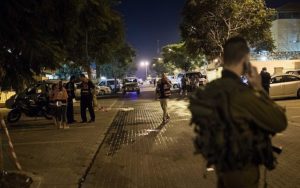
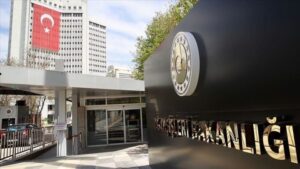
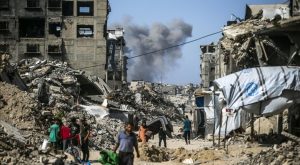
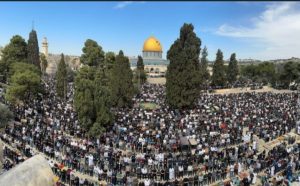
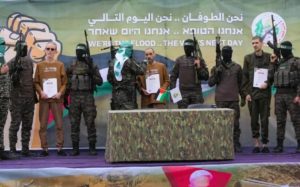
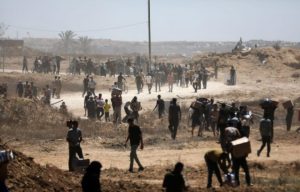

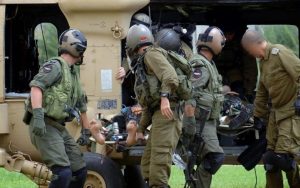
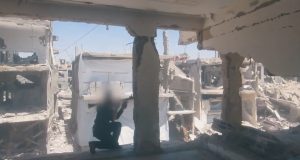
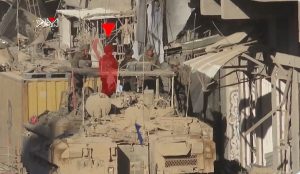
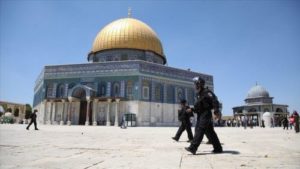
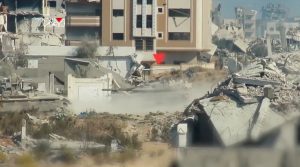
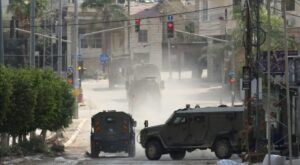



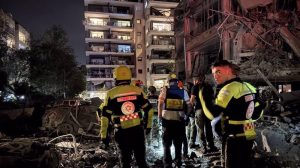


![MUI Chairman for Foreign Relations and International Cooperation, Sudarnoto Abdul Hakim (center) at the One Million Women for Gaza Press Conference entitled "Women Boycott Pro-Israel Products" held at the Swiss-Belinn Cawang Hotel, East Jakarta, Thursday (3/7/2025). [Photo: Arina/MINA]](https://en.minanews.net/wp-content/uploads/2025/07/20250703_144042-scaled-1-300x225.jpg)
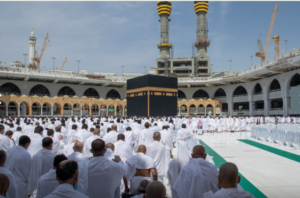




 Mina Indonesia
Mina Indonesia Mina Arabic
Mina Arabic